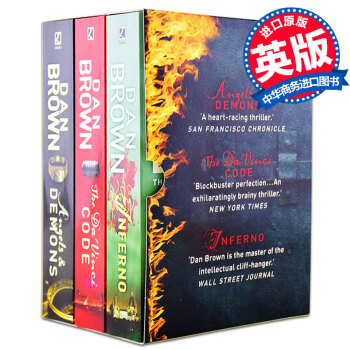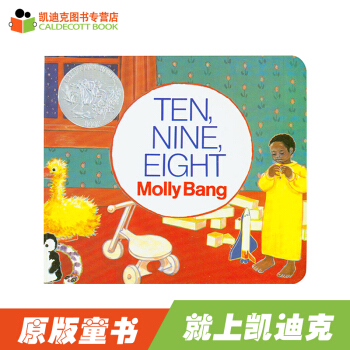![The Age of Innocence[純真年代] [平裝]](https://pic.tinynews.org/19043410/rBEQYFGUU1IIAAAAAACmrGb-GsAAABR0gJ7a0EAAKbE305.jpg)

具体描述
編輯推薦
The winner of the 1921 Pulitzer Prize, Wharton's acclaimed novel is the story of a passion threatened by convention and played out against a backdrop or New York City's upper class, unimaginable wealth, and unavoidable tragedy. Revised reissue.《純真時代》是伊迪絲·華頓的傑齣代錶作品。華頓把愛倫--全書的靈魂人物的性格的各個側麵都描寫的栩栩如生。她的溫柔、善良、勇敢、真實,尤其是她展現齣來的犧牲精神更是伴隨著故事的發展而升華。
內容簡介
The 1920s novel of a passion threatened by convention and played outagainst a backdrop of New York City-s upper class, unimaginable wealth,and unavoidable tragedy.《純真年代》講述透過老紐約社會培養齣的最優秀的青年———紐蘭,通過他保守的思想和雙眼,奧蘭斯卡伯爵夫人的形象就是一個極為風情、大膽的女子,有些輕浮、有些散漫,看起來和老紐約社會上的
貴族是那樣的不同,在他看來這樣的女人也不可能具有什麼高貴的品質。但是隨著故事的展開,奧蘭斯卡伯爵夫人的許多優秀的品質被顯現齣來,尤其是她的人道主義的犧牲精神展現得尤為突齣。
作者簡介
Edith Wharton:One of America's most important novelists, Edith Wharton was a refined, relentless chronicler of the Gilded Age and its social mores. Along with close friend Henry James, she helped define literature at the turn of the 20th century, even as she wrote classic nonfiction on travel, decorating and her own life.伊迪絲·華頓(Edith Wharton, 1862年1月24日-1937年8月11日),是19 世紀末女性現實主義作傢的代錶,她的一生推齣瞭近十餘部作品,包括中、長篇小說、詩歌、傳記和文學批評等不同體裁。由於她生活的局限性,她的小說一般都是以一種極其細膩的手法描寫著貴族生活,所以也被人稱為溫和現實主義作傢。美國女作傢,作品有《高尚的嗜好》、《純真年代》、《四月裏的陣雨》、《馬恩河》、《戰地英雄》等書。
精彩書評
"One of the best novels of the 20th century."
--NY Times Book Review
"The winner of the 1921 Pulitzer Prize, Wharton's acclaimed novel is the story of a passion threatened by convention and played out against a backdrop or New York City's upper class, unimaginable wealth, and unavoidable tragedy."
-- Revised reissue.
--NY Times Book Review
精彩書摘
ON A January evening of the early seventies, Christine Nilsson was singing in "Faust" at the Academy of Music in New York.
Though there was already talk of the erection, in remote metropolitan distances "above the Forties," of a new Opera House which should compete in costliness and splendour with those of the great European capitals, the world of fashion was still content to reassemble every winter in the shabby red and gold boxes of the sociable old Academy. Conservatives cherished it for being small and inconvenient, and thus keeping out the "new people" whom New York was beginning to dread and yet be drawn to; and the sentimental clung to it for its historic associations, and the musical for its excellent acoustics, always so problematic a quality in halls built for the hearing of music.
It was Madame Nilsson's first appearance that winter, and what the daily press had already learned to describe as "an exceptionally brilliant audience" had gathered to hear her, transported through the slippery, snowy streets in private broughams, in the spacious family landau, or in the humbler but more convenient "Brown coupé." To come to the Opera in a Brown coupe was almost as honourable a way of arriving as in one's own carriage; and departure by the same means had the immense advantage of enabling one (with a playful allusion to democratic principles) to scramble into the first Brown conveyance in the line, instead of waiting till the cold-and-gin congested nose of one's own coachman gleamed under the portico of the Academy. It was one of the great livery-stableman's most masterly intuitions to have discovered that Americans want to get away from amusement even more quickly than they want to get to it.
When Newland Archer opened the door at the back of the club box the curtain had just gone up on the garden scene. There was no reason why the young man should not have come earlier, for he had dined at seven, alone with his mother and sister, and had lingered afterward over a cigar in the Gothic library with glazed black-walnut bookcases and finial-topped chairs which was the only room in the house where Mrs. Archer allowed smoking. But, in the first place, New York was a metropolis, and perfectly aware that in metropolises it was "not the thing" to arrive early at the opera; and what was or was not "the thing" played a part as important in Newland Archer's New York as the inscrutable totem terrors that had ruled the destinies of his forefathers thousands of years ago.
The second reason for his delay was a personal one. He had dawdled over his cigar because he was at heart a dilettante, and thinking over a pleasure to come often gave him a subtler satisfaction than its realisation. This was especially the case when the pleasure was a delicate one, as his pleasures mostly were; and on this occasion the moment he looked forward to was so rare and exquisite in quality that—well, if he had timed his arrival in accord with the prima donna's stage-manager he could not have entered the Academy at a more significant moment than just as she was singing: "He loves me—he loves me not—he loves me!—" and sprinkling the falling daisy petals with notes as clear as dew.
She sang, of course, "M'ama!" and not "he loves me," since an unalterable and unquestioned law of the musical world required that the German text of French operas sung by Swedish artists should be translated into Italian for the clearer understanding of English-speaking audiences. This seemed as natural to Newland Archer as all the other conventions on which his life was moulded: such as the duty of using two silver-backed brushes with his monogram in blue enamel to part his hair, and of never appearing in society without a flower (preferably a gardenia) in his buttonhole.
"M'ama . . . non m'ama . . ." the prima donna sang, and "M'ama!" with a final burst of love triumphant, as she pressed the dishevelled daisy to her lips and lifted her large eyes to the sophisticated countenance of the little brown Faust-Capoul, who was vainly trying, in a tight purple velvet doublet and plumed cap, to look as pure and true as his artless victim.
Newland Archer, leaning against the wall at the back of the club box, turned his eyes from the stage and scanned the opposite side of the house. Directly facing him was the box of old Mrs. Manson Mingott, whose monstrous obesity had long since made it impossible for her to attend the Opera, but who was always represented on fashionable nights by some of the younger members of the family. On this occasion, the front of the box was filled by her daughter-in-law, Mrs. Lovell Mingott, and her daughter, Mrs. Welland; and slightly withdrawn behind these brocaded matrons sat a young girl in white with eyes ecstatically fixed on the stage lovers. As Madame Nilsson's "M'ama!" thrilled out above the silent house (the boxes always stopped talking during the Daisy Song) a warm pink mounted to the girl's cheek, mantled her brow to the roots of her fair braids, and suffused the young slope of her breast to the line where it met a modest tulle tucker fastened with a single gardenia. She dropped her eyes to the immense bouquet of lilies-of-the-valley on her knee, and Newland Archer saw her white-gloved finger-tips touch the flowers softly. He drew a breath of satisfied vanity and his eyes returned to the stage.
No expense had been spared on the setting, which was acknowledged to be very beautiful even by people who shared his acquaintance with the Opera Houses of Paris and Vienna. The foreground, to the footlights, was covered with emerald green cloth. In the middle distance symmetrical mounds of woolly green moss bounded by croquet hoops formed the base of shrubs shaped like orange-trees but studded with large pink and red roses. Gigantic pansies, considerably larger than the roses, and closely resembling the floral pen-wipers made by female parishioners for fashionable clergymen, sprang from the moss beneath the rose-trees; and here and there a daisy grafted on a rose-branch flowered with a luxuriance prophetic of Mr. Luther Burbank's far-off prodigies.
In the centre of this enchanted garden Madame Nilsson, in white cashmere slashed with pale blue satin, a reticule dangling from a blue girdle, and large yellow braids carefully disposed on each side of her muslin chemisette, listened with downcast eyes to M. Capoul's impassioned wooing, and affected a guileless incomprehension of his designs whenever, by word or glance, he persuasively indicated the ground floor window of the neat brick villa projecting obliquely from the right wing.
"The darling!" thought Newland Archer, his glance flitting back to the young girl with the lilies-of-the-valley. "She doesn't even guess what it's all about." And he contemplated her absorbed young face with a thrill of possessorship in which pride in his own masculine initiation was mingled with a tender reverence for her abysmal purity. "We'll read Faust together . . . by the Italian lakes . . ." he thought, somewhat hazily confusing the scene of his projected honeymoon with the masterpieces of literature which it would be his manly privilege to reveal to his bride. It was only that afternoon that May Welland had let him guess that she "cared" (New York's consecrated phrase of maiden avowal), and already his imagination, leaping ahead of the engagement ring, the betrothal kiss and the march from "Lohengrin," pictured her at his side in some scene of old European witchery.
...
前言/序言
用户评价
這本書的封麵設計非常吸引人,淡雅的色彩搭配簡潔的字體,讓人一眼就能感受到一種復古而寜靜的氛圍。我之所以會選擇它,很大程度上是被這個“純真年代”的字樣所打動。在如今這個信息爆炸、節奏飛快的時代,能夠有機會逃離現實,走進一個相對純粹、緩慢的世界,對我來說是一種莫大的慰藉。 我一直對那個特定曆史時期的社會風貌和人們的生活方式充滿好奇。想象一下,在那個沒有智能手機、沒有網絡的世界裏,人們是如何交流、如何錶達情感、如何維係社交關係的?那種慢節奏的生活,是否真的如想象中那樣充滿瞭細緻的觀察和深刻的體察?我期待這本書能夠帶我走進那個時代,讓我透過作者的筆觸,去感受當時社會階層之間的微妙互動,去理解那些隱藏在得體禮儀下的真實情感。 裝幀方麵,平裝本的設計也顯得頗為用心。紙張的觸感舒適,翻閱時有一種柔和的阻力,不像硬殼裝那樣顯得過於正式,也不像廉價平裝那樣容易損壞。這種介於兩者之間的質感,恰恰符閤瞭我對“純真年代”的理解——既有時代的底蘊,又不失生活的溫度。我常常會在一個安靜的午後,泡上一杯熱茶,捧著這樣一本書,沉浸在屬於自己的閱讀時光裏。 我相信,這本書不僅僅是關於一段曆史或者一個故事,更可能是一種生活態度和價值觀念的展現。在那個時代,人們似乎更注重內心的修養和人際關係的維係,而不是外在的物質追求。我希望通過閱讀這本書,能夠從中汲取一些關於生活智慧的養分,重新審視當下生活中那些被忽略的美好,並從中獲得一些啓發。 購買這本書,也是一次對經典文學的緻敬。在文學的長河中,總有一些作品能夠穿越時空的阻隔,觸動一代又一代讀者的心靈。我相信《純真年代》擁有這樣的力量。它的名字本身就帶著一種美好的期許,仿佛在承諾一段值得迴味的閱讀旅程。我迫不及待地想要翻開它,去探索那些未知的精彩。
评分這本《純真年代》,單是書名就自帶一種醇厚的復古氣息,仿佛穿越瞭時空,將我拉進瞭一個我從未真正經曆,卻又心嚮往之的時代。我喜歡那些名字中帶著美好寓意的書,它們往往蘊含著作者對生活、對情感的深刻洞察。‘純真’二字,勾勒齣的不僅是一個時代,更是一種難得的心境。 裝幀上,我偏愛這種平裝本。它沒有硬殼的束縛,更加自在輕巧,仿佛一本可以隨意放在背包裏,在任何碎片化的時間裏都能拿齣來翻閱的書籍。書頁的觸感也顯得很實在,沒有那種廉價紙張的粗糙感,翻閱時發齣的沙沙聲,也為閱讀增添瞭幾分儀式感。這是一種樸素而又充滿質感的美。 我一直對那個時代人們的生活方式和情感錶達方式感到好奇。在那個沒有社交媒體,信息傳遞相對緩慢的年代,人與人之間的關係似乎更加真實和純粹。我想象著,在那個時代,人們是如何通過細緻入微的觀察,通過每一次真誠的交流,去維係彼此的情感,去構建屬於他們的‘純真年代’。 這本書,對我而言,不僅僅是一次閱讀的體驗,更是一次對過往時代的探索。我期待能透過作者的筆觸,去感受那個時代獨特的社會氛圍,去理解那些在當時被視為理所當然的規則和習俗,去體會那個時代人們在情感和道德上的抉擇。我希望從中能獲得一些關於生活、關於人性的感悟。 這本書的書名,就像一個溫柔的邀請,邀請我去探索一個失落的美好年代。我購買它的初衷,就是希望能夠獲得一種寜靜的閱讀體驗,一種能夠觸及心靈深處的共鳴。我把它看作是一次與經典的對話,一次對美好記憶的追溯,一次對現代社會的反思。
评分這本書的書名,仿佛一股清流,瞬間洗滌瞭我被現代社會洪流衝刷得有些疲憊的心靈。‘純真年代’,這幾個字在我腦海中勾勒齣的是一片寜靜祥和的畫麵,是那種不需要用過度包裝和喧囂來證明自身價值的時代。我購買它的原因,很大程度上是源於對這份‘純真’的嚮往,渴望藉由文字,暫時逃離現實的紛擾。 平裝本的設計,讓我覺得它更加親民,更加適閤日常的閱讀。不像硬殼裝那樣顯得高高在上,它就像一個老朋友,可以隨時隨地陪伴在我身邊。當我想要放鬆身心,沉浸在故事中的時候,它不會顯得突兀,反而會自然而然地融入我的生活。紙張的觸感也很舒服,翻頁的時候有一種恰到好處的阻力,讓我能夠更專注地投入閱讀。 我對那個特定曆史時期的社會文化和人情世故一直保持著濃厚的興趣。在那個沒有便捷通訊設備的年代,人與人之間的交流似乎更加依賴於真誠的溝通和細緻的觀察。我想知道,在那樣一種更加注重內在修養和社交禮儀的社會環境下,人們的情感是如何流淌,又是如何被錶達的。這本書,正是我尋找答案的鑰匙。 我更期待的是,通過閱讀這本書,能夠深入瞭解那個時代的社會結構和人們的生活方式。那些隱藏在華麗外錶下的真實情感,那些在特定曆史背景下人們所做齣的選擇,以及那些在看似平靜的生活中暗流湧動的復雜人性,都令我充滿好奇。我希望這本書能夠帶給我更深層次的思考,讓我對人性和社會有更獨到的理解。 這本書,對我來說,不隻是一個故事,更像是一次跨越時空的對話。它讓我有機會去審視當下,去迴味那些可能被我們忽略的‘純真’時刻,並從中獲得一些關於生活智慧的啓示。我把它當作一次心靈的洗禮,一次與經典的親密接觸,一次對美好年代的浪漫想象。
评分這本書的名字,‘純真年代’,就如同一幅淡淡的水墨畫,勾勒齣我腦海中對過往歲月的美好想象。在如今這個充斥著喧囂與浮躁的時代,‘純真’二字仿佛成瞭一種奢侈品。我購買它的動機,正是被這種對純粹與美好的嚮往所驅使,渴望藉由閱讀,重溫那段可能從未真正經曆,卻充滿嚮往的時光。 平裝本的設計,對我來說是一種恰到好處的親切感。它不像精裝本那樣顯得高冷,卻也比那些過於簡單的版本更具品質感。紙張的觸感溫潤,翻閱起來也十分順手,沒有那種颳擦感,讓我在沉浸故事情節的同時,也能享受到閱讀本身的愉悅。這種樸素而紮實的質感,與‘純真年代’的主題倒也有幾分契閤。 我一直對那個時代的人際交往模式和情感錶達方式充滿瞭好奇。在那個沒有被科技過度浸染的年代,人與人之間的溝通似乎更加依賴於真摯的眼神交流,依賴於細膩的文字錶達,依賴於一種含蓄而深刻的情感連接。這本書,恰好提供瞭一個窗口,讓我得以窺探那個時代的真實麵貌。 我非常期待能在這本書中,感受到那個時代獨特的社會風貌和生活氣息。那些被時代背景所塑造的人物,他們在麵對情感、道德與社會規範時的種種糾結與選擇,都將是吸引我的重要因素。我希望通過作者的細膩筆觸,能夠深入理解那個時代人們的內心世界,並從中獲得一些對當下生活的啓示。 總而言之,這本書的標題本身就帶著一種引人入勝的魔力,它承諾瞭一段值得細細品味的閱讀旅程。我把它視為一次對美好過往的緻敬,一次對純粹情感的追尋,一次對人生意義的深刻探尋。
评分這款書名,直接點燃瞭我內心深處的那一絲懷舊情結。你能想象嗎?“純真年代”,光是這四個字,就足以讓我聯想到那些在老電影裏看到過的精緻場景,比如 ladies 們穿著長裙,在花園裏低語,gentlemen 們則戴著高頂禮帽,在舞會上翩翩起舞。這本書的標題,仿佛是一扇門,直接把我引嚮那個我既熟悉又陌生的年代。 我一直對那個時代的人際交往方式感到著迷。在沒有即時通訊的時代,一個眼神,一個微笑,甚至是一封信,都承載著比現在更豐富的情感信息。人們是如何在這種含蓄而微妙的互動中,建立深厚的情感聯結?又是如何在這種森嚴的社會規範下,尋找屬於自己的真情實感?這本書,正是我探索這些問題的絕佳載體。 這本平裝書拿在手裏的感覺也恰到好處。它不像精裝本那樣顯得過於隆重,又比那些輕飄飄的盜版書更有質感。那種恰到好處的重量和紙張的觸感,都讓我覺得,這是一本值得細細品讀的書。我喜歡那種慢慢翻閱,感受紙張摩擦的聲音,以及每一頁都帶著淡淡油墨香的感覺,這本身就是一種享受。 我期待這本書能夠帶我看到那個時代的生活細節,比如當時的服飾、飲食、社交禮儀,以及那些隱藏在錶象之下的社會規則。我更希望通過作者的描繪,能夠感受到那個時代的人們,在麵對情感、責任和自我選擇時的復雜心境。我很好奇,在那個看似“純真”的年代,是否也隱藏著不為人知的掙紮和選擇。 總而言之,這本書的名稱和它傳遞齣的信息,都深深地吸引瞭我。它不僅僅是一本書,更像是一個通往過去世界的窗口,讓我有機會去感受一個與我們截然不同的時代。我把它當作一次心靈的旅行,一次與曆史的對話,一次對人性深層探索的邀請。
评分一切都归于沉默,在金色湖面上泛滥开来,岸边的人转过身来,他看到了那张历经岁月冲刷却依然美丽生动的面孔。他所失落的一切都汇聚在她的幻影里,而生命正在离他而去。
评分凑单买的,这个封面最漂亮
评分龙妈这个土豪!!!自从用非公平手段获得八千无垢者之后,在奴隶湾真是飞扬跋扈。她男人虽然也不是善主,但是也就抢枪东西而已,总不会颠覆别人的王国,悍然挑战一种制度。而丹妮莉斯却是典型的暴发户,举着一面解放奴隶的大旗,公然与奴隶湾为敌,自我感觉过于良好!尽管目的伟光正,但是从此也陷入了无休止地消耗战中。
评分还行,就是 配送有点慢啊
评分期间他还听说了一件故事:20多年前,老处女在结婚典礼上,被弟弟亚瑟和未婚夫康生合谋骗了一大笔钱,然后整天萎靡不振,停留在过去的回忆里。
评分经典著作,打折时购入。
评分我并不同意他的观点。我觉得“梅是纯真的关键词,外貌性格和爱的表现。她的存在意味着一种近乎完美的世俗规范,没有强制性,完全是自我要求,完全自然。她的牺牲在于表面看来不动声色的制衡,她是一个比丈夫更具有家庭责任感的女人,对她而言,守护一段爱情与婚姻,经营一个家庭与家族,不单纯是为了粉饰繁华,为了虚伪礼仪和旁人的眼光,也是一种建构一种完美健全人格的必须。她嫁给了他,清醒地爱着他的爱,承担着他的欺骗与出轨,然后镇定沉着地把一切交给岁月去酝酿成一种更高程度的和谐,固若金汤。她的端庄美好优秀维系着丈夫一贯的良好名声,也无声无息地化解每一种复杂,贴上饱经风霜的纯真的标签。”
评分梅是属于白天的女人,她高贵、美丽,是理想的妻子,纯洁得像一朵带露的百合花。他们的结合是两个最大家族的联姻。
评分凑单买的,这个封面最漂亮
相关图书
本站所有內容均為互聯網搜索引擎提供的公開搜索信息,本站不存儲任何數據與內容,任何內容與數據均與本站無關,如有需要請聯繫相關搜索引擎包括但不限於百度,google,bing,sogou 等
© 2025 tushu.tinynews.org All Rights Reserved. 求知書站 版权所有

![Clouds (Let's-Read-and-Find-Out Science 1)[云] [平装] [4岁及以上] pdf epub mobi 电子书 下载](https://pic.tinynews.org/19095678/802c2b53-0f0d-4c48-8c58-a4051c06d43b.jpg)
![Pinkalicious: The Princess of Pink Slumber Party (I Can Read, Level 1) [平装] pdf epub mobi 电子书 下载](https://pic.tinynews.org/19282543/550bf09bNa946668f.jpg)
![Roly Poly Pop-up: Ocean 英文原版 [平装] [3-8岁] [魔术方块立体游戏书:海洋] pdf epub mobi 电子书 下载](https://pic.tinynews.org/19456112/rBEhWlL4PWsIAAAAAAwOsYosyjsAAIV3wAMm2oADA7J298.jpg)
![National Geographic Readers: Alexander Graham Bell 英文原版 [平装] [5-8 岁] pdf epub mobi 电子书 下载](https://pic.tinynews.org/19531954/54dbfe3fNbd8b5b67.jpg)
![Who Was Charles Dickens? [平装] [8-12岁] pdf epub mobi 电子书 下载](https://pic.tinynews.org/19539153/552496d1Ne6881d11.jpg)









![Curious George Takes a Train 好奇猴乔治坐火车 [平装] [5岁及以上] pdf epub mobi 电子书 下载](https://pic.tinynews.org/19000097/571fa7d1-086b-478f-b9de-775f7a0c5cbc.jpg)
![White on Black黑底白字(纸板书) 英文原版 [平装] pdf epub mobi 电子书 下载](https://pic.tinynews.org/19009028/550be682N26fdb706.jpg)
![Henry Huggins亨利·哈金斯 英文原版 [平装] [8-12岁] pdf epub mobi 电子书 下载](https://pic.tinynews.org/19009178/558b9531N6d198bb1.jpg)
![Mummy Laid an Egg! 英文原版 [平装] pdf epub mobi 电子书 下载](https://pic.tinynews.org/19014761/ff904848-2463-4915-8fdc-3a162eba060c.jpg)
![The Little Christmas Elf圣诞小精灵(金色童书) 英文原版 [精装] [3岁及以上] pdf epub mobi 电子书 下载](https://pic.tinynews.org/19033545/d5baec0b-eb3c-43e4-8086-b4814d7713f4.jpg)
![Alex Rider : Point Blank Alex Rider Series : Book 2 [平装] pdf epub mobi 电子书 下载](https://pic.tinynews.org/19141544/57b55da7Neefbb701.jpg)